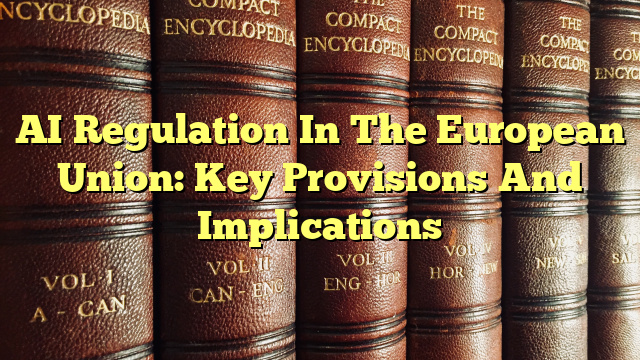Introduction
In recent years, artificial intelligence (AI) technologies have developed rapidly, transforming the way we interact with the world and providing us with unprecedented levels of convenience. However, as AI increasingly permeates all aspects of society, there is an urgent need to set up effective regulatory frameworks to ensure that AI is employed safely and ethically. The European Union (EU) has been at the forefront of discussions surrounding AI regulation and has recently proposed a regulation to govern the use of AI within the European Economic Area. This article will explore the key provisions of the EU AI regulation and the potential implications for organizations.
What is the European regulation on artificial intelligence?
In April 2021, the European Commission (EC) unveiled the proposed “Regulation on a European Approach for Artificial Intelligence” (the EU AI Regulation). The purpose of the regulation is to provide a safe and ethically responsible legal framework for AI technologies in the European Economic Area. The regulation sets out a range of provisions to ensure that AI is used effectively and responsibly, and to protect European citizens from the potential harms associated with the use of AI.
What are the obligations of the EU AI Act?
The EU AI Regulation provides for a number of obligations for organizations using AI technologies. These include:
- Organizations must ensure that AI technologies are developed and deployed in accordance with fundamental rights, principles of ethical AI, and the principles of high-quality AI.
- Organizations must have effective organizational measures in place to ensure that AI technologies are used in a safe and responsible manner.
- Organizations must ensure that AI technologies have clear and transparent governance and accountability structures.
- Organizations must provide adequate documentation and technical information to ensure that the use of AI technologies is safe and ethical.
- Organizations must provide adequate protection for personal data and must ensure that AI technologies are used in a manner that is consistent with data protection rules.
- Organizations must ensure that AI technologies are not used for any illegal activity.
What is the European Commission’s proposal for a regulation on artificial intelligence?
The EC has proposed a number of key provisions that are intended to ensure the safe and responsible use of AI technologies in the European Economic Area. These provisions include:
- The establishment of a European AI Regulatory Authority to oversee the implementation of the regulation.
- The development of a set of ethical AI principles to guide the development and deployment of AI technologies.
- The introduction of a “risk-based” approach for regulating AI technologies.
- The development of a certification system for AI technologies.
- The establishment of a monitoring system to ensure that AI technologies are used in a safe and responsible manner.
- The introduction of new rules to ensure the safe and responsible use of data for AI technologies.
- The development of a set of incentives for organizations to develop and deploy AI technologies responsibly.
Conclusion
The proposed EU AI Regulation is an important step towards ensuring the safe and ethical use of AI technologies in the European Economic Area. The regulation seeks to provide organizations with a clear set of obligations and incentives to ensure that AI technologies are used responsibly and in accordance with fundamental rights and principles. It remains to be seen how the regulation will be implemented and enforced, but the provisions of the regulation should provide organizations with a clear framework for the safe and responsible use of AI technologies.

